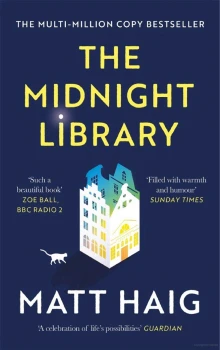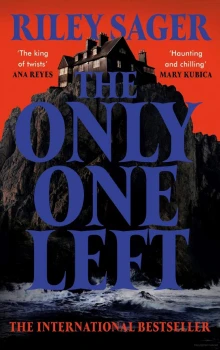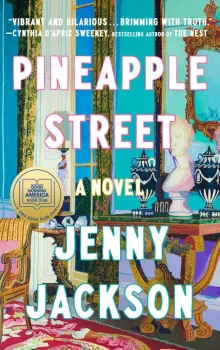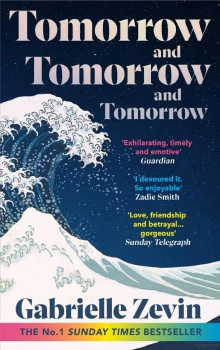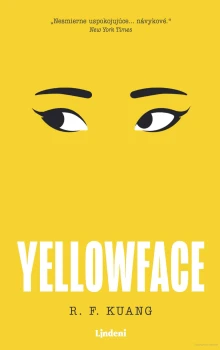15
In somebody’s life the train whistle blew through the late afternoon as it headed to Marlborough on the first day of winter. You could hear it standing in the parking lot of the HomeMarket, the blacktop dusted with frost as the last cars pulled out, the people inside full of hydrogenated oils and iodized salt after sitting all morning on warped church pews, nodding in and out of sermons they’ve heard a hundred times before. It was four days before Christmas and the winter light breathed around the store, which was still burning deep gold inside. Through the wide, daily washed windows, clear as air, a large woman in a manager’s white button-up and bow tie flipped the sign from Come on In! to See You in the Morning! before heading back to the counter. The crew took off their rubber gloves, untied their aprons, and gathered around her, their heads rapt in attention as she seemed on the cusp of making a speech of great significance, one that might report on the realignment of stars or announce the emergence of a new, benevolent epoch.
There were only three customers left inside, regulars known by name and gait. A pair of working girls in their forties, eyes smoked out with makeup and leather jackets zipped to their chins, were tucked in a booth working over a whole roasted chicken, their primary-colored nails gleaming between rib bones. Wayne had made it special just for them, rubbing it with rosemary picked from his windowsill garden at home and timing the roast ahead of their night shift along Route 4.
The last customer was a mechanic with a youthful face and battered, oil-clotted hands, whose sky-blue work shirt Hai always spotted the second he stepped through the door, the word Tom stitched over his heart. He sat alone by the dimming window over his usual: mashed potatoes and green beans doused with gravy. He ate with his head down, hiding the shiny, taut bump where his left ear used to be, stealing glances at the women picking the chicken down to bones.
The manager clapped her hands to get everyone’s attention, the gold name tag etched with BJ catching the light as she moved. Her mother, in her seventies and stooped over a plastic table in a faux fur coat and red beret, had brought everyone a tray of her famous lasagna. The employees ate it standing, some with eyes closed and swaying slightly, which made the mother lean back and fold her arms, nodding with preternatural pride. She looked up at her daughter with something even more luminous, her mouth half-open as the woman she birthed now towered before the room corralled to attention. “All right, all right, all right,” BJ said with a Matthew McConaughey drawl. “Y’all ready for the show?”
Maureen was chatting with one of the sex workers, so Wayne grabbed a corn bread from the basket and chucked it at her. “Shut it, Maur,” he said as it fell to the table after hitting her chest.
Maureen picked it up and took a bite. “I didn’t know this concert came with snacks.”
“If you want more to snack on, just let me know.” Wayne grinned at the women, who laughed into their jacket collars.
“You can do anything you want for a grand.” Maureen winked at the women. “What you think, girls? Too low?”
BJ licked her lips and clasped her hands. “Remember, though, this is just a practice set. It’s called a rehearsal, okay? So don’t put too much weight on it and all that.”
“You’re doing great, Jean!” Her mother pumped her fur-lined fist.
“I didn’t even start yet, Maman.” BJ lifted a portable amp from behind the cooling vats and plugged it in, then unzipped her JanSport backpack, which looked more like a fanny pack in her hands. The zipper opened and out fell a pocket dictionary, along with a couple Death Note mangas. BJ snatched them and shoved them inside.
“A dictionary, huh? And what kind of grown woman reads coloring books?” asked Wayne, a plate of half-eaten lasagna in his hand.
“Do you know who else read the dictionary, cover to cover?” BJ glanced around the room. “Eminem. That’s right.” She looked at Russia, who nodded. “And don’t sleep on Death Note. There’s some good shit in there.”
“You would be widely read,” said Sony, predictably sincere. “All great generals are.”
BJ switched on the amp and its static buzz filled the room. She removed her bow tie, wrapped it around her forehead like a headband, and smiled with all her teeth. The room grew quiet. The women in the booth sipped from their sodas, skeptically amused.
“You got this, BJ,” Hai said.
“You can do it, baby,” her mother chimed in. “You were blessed by Him.”
BJ smiled nervously, then tapped the play button on the stereo with her shoe, and the heavy metal beat dropped. The restaurant bounded with thick, discordant guitar riffs, a dense, muscular drone of drums—and soon everyone’s heads started to bob as if on puppet strings. BJ’s mother snapped her long bony fingers, the fur jacket flouncing around her shoulders. She opened her mouth to laugh but only BJ’s voice was heard through the speakers as she metal-screeched through a rendition of “Bodies” by Drowning Pool. BJ paced back and forth behind the counter as the bass raged on, the sight of their manager performing heavy metal behind the station where green beans and creamed spinach were usually served seemed conjured from a fever dream.
The crew had been hearing about her pro wrestling aspirations for months (and for Wayne and Maureen, years) and how vital an entrance song was to bolster a wrestler’s persona—but none of them expected her to be even decent, let alone capable of sounds most of them had heard only on TV. Hai found himself flushed with a rare sense of communal triumph. He took two inadvertent steps toward her, as if toward a mystical source of energy.
“Okay,” said Wayne, nodding along with his arms crossed. “Okay, so you’re all right. Damn, this sounds…well, it sounds legit. Like,” he turned to Russia, “like that crazy white music.”
Sony was by the soda fountain, spellbound, mouth agape, his cup overflowing under the Sprite tab. He stared up at his Ulysses S. Grant thrashing her head to heavy metal. Even the beautiful mechanic, who Hai kept sneaking eyes at, pushed his plate of mashed potatoes aside to turn around, a smile eased across his lips. The working girls were shouting BJ’s name, hooting between cupped hands, the tiny box of a restaurant in a strip mall suddenly a bizarre town square.
When the song was over, her neck drenched, her face a mix of happiness and relief, touched with the exuberance of accomplishment, taking in the dining room, her little planet spinning with the people who worked for and with her, BJ dashed from the counter and hugged her mother. “Vas-y, ma fille! Vas-y,” her mother cried out into BJ’s shoulder.
“Everyone listen up!” BJ cried. “On January eleventh. At Hairy Harry’s bar on Churchill. I’ll be in the lineup for the Valley Grand Slam Amateur Wrestling Association. So this was just a taste for you guys to get ready. It will be for real for real after New Year’s, alright?”
“That was fantastic!” Hai reached up to hug her. “How did you get so good while working here? How did you have time to practice?”
“I love what I do, rook. Shit, I’m trying to be, like, the Steve Jobs of wrestling, you know?”
“Isn’t that, like, the Rock or whatever?”
“Like I said,” she patted Hai on his head like he was a little boy who had a lot to learn, “the Steve Jobs of wrestling. I’m here to change the game.”
Hai went over to Sony to hug him but stopped himself, recalling something in the brochure about unprompted touching. “There’s nothing she can’t do,” Sony said, enraptured. “She just makes magic. Hey, BJ!” He waved like a fangirl in the front row. “You’re the general of magic!”
“Wait till you see my secret weapon.” A knowing smile crossed BJ’s face. “You’ll see what I got up my sleeve at the match. It’s gonna be epic!”
As the excitement ebbed in the room, Maureen waved Hai and Russia over to the register. She bent over and took something out from under the counter. “I want y’all to have this, okay? And you boys can share it if you want. It’s for you both, really.”
Before he knew it, Hai found himself holding what seemed like a plaster mold of a phallus the size of a middle school baseball trophy. Hai held it out in front of him. “It’s perfect,” he offered, “but…what is it?”
“It’s R2-D2.” Maureen folded her arms in admiration. “I figure since it was me who convinced you all to come help Wayne with those hogs, I just wanted to at least give you something. You know, as a thank-you.”
“Dude,” said Russia. “It looks kinda off, don’t you think?”
Hai nodded to himself. “Six out of ten in accuracy.”
“It’s not finished, of course. Paul was making it for me before he got sick.”
“Oh, I’m sorry,” Hai said, turning it around. “It looks pretty close, actually.”
“I have a completed one of C-3PO on my bed stand. It’s papier-mâché, a tad skinny, and he didn’t get to paint it, but you get the gist. I mean…I’m not gonna lie, it does look like a penis,” she giggled. “Fuck, even the little wheels on the bottom look like shrunken balls. But if you squint,” she closed one eye, “it’s definitely R2-D2.”
They stood a moment studying the object, their black uniforms making them look like undertakers inspecting an urn.
“It’s all yours, rook.” Russia tapped Hai on the chest and walked away.
Hai cradled the penis in his arms. “Thanks.”
It was starting to flurry outside, flakes spinning in squalls through the drive-thru light. Not a single car could be seen beyond the glass, only a soft violet glow coming up from the earth, which meant the ground was already covered with snow.
After they closed and the parking lot emptied, the mini-concert all but a vague hum through their ears, Sony hopped on the back pegs of Hai’s bike and the boys sped down the road toward the center of East Gladness, R2-D2 poking through the zipper in Hai’s backpack. The pavement, warmed by the day’s weak sun, had already begun to melt the snow into a wet sheen.
“Tonight’s the night.” Sony gripped his cousin’s shoulder, his voice pitched with excitement. “I can’t believe you found enough. How did you do it?”
In the commotion of BJ’s rehearsal, Hai had forgotten about this secret mission they had planned after work, and let out a nervous laugh. “You think we’ll have a white Christmas, Sony?” The brochure had mentioned it’s helpful repeating names in conversation, that it’d be some kind of anchor for the “afflicted.”
Sony removed his cap and held it out in front of him, letting the flakes blur into its bowl. “Yes,” he said, breathless. “It has to, since we haven’t had one in the last three years and it never goes more than three years. They won’t let it happen.”
“They who?”
Sony thought about it. “The generals.”
“Robert E. Lee?” Hai dipped his head as the bike approached a small hill and they picked up speed.
“No, silly,” he laughed. “The generals of history. And I’m one of their soldiers. See?” He showed Hai his cap. Before they left, Sony went to his locker and switched out his HomeMarket hat with his Union infantry field cap, fixed with a shiny golden bugle, he had bought on eBay.
“Why you wearing that thing anyway?”
“For luck. We’re gonna need it tonight.”
An icy gust blew up from the river and hit their faces, the boys wincing as they shouldered into the cold and the bike headed toward the lights in the distance.
By the time they made it to the strip mall, this one closer to the heart of town, the snow was done, leaving behind it a fog so dense the neon signs became smears of color suspended across the parking lot. Cold and wet, fingers raw, they walked the bike toward the lights as, one by one, the businesses came to view: a packy, the windows lined with wine bottles and liquor, an urgent care closed for the night. And there, in between a Subway and a hole-in-the-wall spot up for lease, was Bryon’s Insta-Bail. Underneath the yellow-lit sign a banner read A way out in 24 hours: Open all night.
It was almost ten p.m. when Sony pressed the buzzer and a man’s frog-like face poked out from behind the glass counter. He studied them a moment, then waved the boys in and released the lock. The place was small but bright, like a drugstore in the outskirts of a distant and crumbling republic. There was a wood-paneled waiting room and a counter where the man sat chewing a sandwich. Above him was a poster of George W. Bush with a speech bubble that said, Freedom ain’t free.
“Hey.” Sony stepped to the counter. “I’m back. And we got it now. We can get my mom.”
The man held up a finger and winced as he worked to swallow. “Give me a minute. I got two bites left.”
The boys stood, looking around the room, the sound of chewing and juices dripping on wax wrapper. The man took a final bite, sipped from a Subway cup, tossed the wrapper vaguely at a garbage can nearby, and wiped his mouth with his shirt collar. “Okay, who we liberating tonight, boys?” When he clocked the Union cap, the man’s beady eyes, set deep in pink-raw skin, lit up. “Oh, right. You again. With the mom up in York Corrections?” He rubbed his jowls and nodded to himself.
“Yes, sir. Lê Thị Kim’s her name. We can bail her out now.”
Hai hadn’t said a word this whole time. He’d never been in a bail bonds office, and it suddenly crushed him to think his cousin had been coming here for months alone with his useless little Civil War hat.
“Remember, five grand. No less. That’s not including the fees, which puts you back half a grand more.” The man leaned back and folded his arms. “I don’t make the rules, capisce? If I could free everyone’s mother for a nickel, I would.” He couldn’t help smirking. “I have a soft spot for single moms, you know. You her other son? Who did you guys rob to make this work, huh?” He winked at Hai and put up his hand. “No, no, no. Don’t tell me! I’m not a lawyer.” He slapped the desk and laughed. His thick glasses made it look like he was wearing googly eyes. Hai’s head started to hurt. He felt like a reflection in a fun house mirror.
Sony turned his whole body to look at his cousin, whose hands were hidden in his UPS jacket. All of a sudden Hai couldn’t move. Something had pinned him under the humming light. The man’s labored breathing, which forced itself through a clogged nose, literally whistled as he inhaled.
“Show him, Hai. Show him what the old lady gave you.” Sony tilted his head back and looked at Hai with lit desperation, as if looking at a map to a place he’d never been. “You said she paid you for taking care of her, right? And I’ll reimburse you for this. I know you didn’t want me to, but I will. Promise.” Sony turned to the clerk. “I’m a man of my word, sir.”
This was the plan—to finally bail out Aunt Kim with the $4,274 Hai took from Grazina’s cookie tin. That, plus the one thousand and change Sony had saved up, would be enough. Hai shut his eyes until the sound of the ticking radio in the corner and the clerk’s wheezing dissolved, and through the shadow under his lids, Grazina’s head swam up to him, open and innocent as a lily, and he saw his own face reflected in her wide glasses. She was watching something over his shoulder, something he couldn’t stomach to see: it was himself standing on the rail bridge on that rainy evening in September, the threshold of it all. Then he saw the bakery, the soldiers breaking the windows, a seventeen-year-old Grazina crying inside, surrounded by loaves of rye, the trains moving through kingdoms of ungodly death made by God’s children. He didn’t know his hands were shaking until he looked down and saw them.
“Here’s my half, sir,” Sony’s voice said.
There was the sound of bills being counted.
Hai looked down past his hands and saw the crushed bread at his feet, the rain from the night he first met Grazina soaking through the rolls. Then he surfaced and nearly gasped realizing what he was about to do—and changed his mind.
The money was in two wads, one in each pocket. He put only one wad on the counter.
The man counted Sony’s stack and put it aside. Hai was surprised how small $1,200 looked, no thicker than a Hershey bar. Next the man counted Hai’s, then stopped, looked away at the wall, and let out a dramatic sigh before shoving the two little stacks back at them. “Not enough,” he said with a face like he expected this all along.
Sony’s shoulders wilted. “No, no. My cousin wouldn’t get it wrong. He went to college. Sir—” And this was where Hai had to turn away. “Sir,” Sony said, saluting the man, his hand trembling at the visor of the Union cap, the gold bugle blazing under the lights. “We wouldn’t come here to mess with you. Please, with all due respect—”
“Okay, alright. Fuck me.” The man picked up the two stacks and counted again as Hai stumbled toward the door, unable to meet Sony’s dewy eyes.
“See? No. Still doesn’t add up, brother.” He handed Sony the money and told him, in a half-cheery tone, that he was only two grand off. “That’s nothing. You’ll get it in no time. Everybody does.”
Sony turned to his right as if someone who would help was sitting in one of the waiting chairs. But no one was there. “Please,” Sony said, his voice almost squeaking. “Can you please take it anyway?”
Hai walked back and put his hand on Sony’s shoulder, gentle at first, then pressing down. “Come on. I fucked up, okay? I can’t count.”
“It’s okay,” Sony mumbled, looking down at his shoes. “Everyone has limitations. Even Lincoln.” He handed Hai back the wad of cash.
“We’ll try again, okay? You can help me count next time before we head out. I majored in general ed and suck at math. I’m sorry.”
“Thanks for understanding, boys. I’m just the messenger. But hey…actually,” the clerk leaned over the faded counter, “you guys know anything about astrology? I’ve been trying to get into it. My new girlfriend is obsessed. I’m telling you, broads with bangs love this shit. Look here.” He showed them an entry in the East Gladness Eagle. “It says Aries will have ‘an event that will bring renewed levity in your life by the end of the week.’ But what the hell is a ‘renewed levity’? Did mine expire or something?” He let out a nervous laugh. “Wonder if this thing can tell if the Bruins will make the playoffs.”
Hai turned and walked out.
“Sorry, sir,” Sony said, “but I believe only in history.”
“You know what? Me too, brother,” the man said, nodding. “Me too.”
Their breaths smoked as they stared at the sodium lights crisscrossing the lot. Though it was still days away, the whole town had the eerie blank silence of Christmas Eve.
“I wish I didn’t feel this way,” Sony said.
“What way?”
“I dunno…like…” He shut his eyes, his forehead wrinkling as he searched.
“It’s alright—”
“Like a loser,” he said at last.
Hai flinched. Not because it hurt to hear but because he knew something like it was coming. Sony sat down on the curb and Hai joined him, their shoulders touching through their jackets.
“Hey, look at me.” Hai cupped Sony’s chin and met his eyes. “I’m a fucking loser too. Okay?”
“But you went to college—”
“No. Don’t you get it? I dropped out. That’s, like, worse than never going in the first place. I quit. I had the chance and I blew it. I’m a bigger loser than you or anybody else we fucking know. You, you at least have nothing to lose.”
Sony frowned at this, more bewildered than hurt.
“Fuck.” Hai kicked at a nearby paper cup. “I don’t mean it like that. I just thought…I’m an idiot and can’t count, okay?” He hid his face in his palms and had the sudden urge to scream. Not knowing what to do, he took out his phone and flipped it open.
“Who are you calling at this hour?”
“Just give me a sec. Here, listen to this.” Hai played an MP3 of the song he used as a ringtone, the only song he had on his Nokia.
“What is it?”
“American Football.”
Sony gave him a weird look.
“It’s a band. And the song’s called ‘The Summer Ends.’ I listen to it when I’m fucked up.”
Sony listened to the tinny music, his head lowered and very still. “But it sounds sad. Why would you listen to sad things when you’re already sad?”
“I dunno.” Hai drew circles in the pavement. “Guess it gives the feeling a place to stand in. Like a little bus stop.” The neon Subway sign switched off, and in the sudden dark he noticed the winter stars over the strip mall, clearer than they’d ever be in summer.
Sony tugged at his sleeve. “Look at this,” he said as the song went on.
It was a photo. Hai brought it closer and saw his own face, then his mother’s, Aunt Kim, Bà ngoại, everyone. They’re standing on the tarmac of Tân So’n Nhất airport in a group shot, moments before stepping onto the plane to America, for good. They’re dressed in the garish floral patterns so common to rice farmers, the fabric bought from bolts of cloth in open markets, then sewn at home under a thunderous metal Singer machine left over from the French occupation. Their faces harsh in the noon light, unsmiling, worry crushing the features into knots. He examined the infant blob on his mother’s hip sucking his own thumb, Ma no older in the picture than he is now—at the bottom of himself.
“You always carry this with you?”
Sony nodded, wallet in hand. In the photo, Sony is not yet born but two years away, a snapshot of his inevitable becoming, of them forever on their way to East Gladness, where he will be born a month too soon, so terrible was his eagerness to meet them, these losers.
He leaned in and Hai saw the stars reflected in the bugle on Sony’s cap. “Isn’t my mom beautiful?” Sony stared at the photo as if for the first time, his neck craning over Hai’s arm so that his Adam’s apple touched his wrist. “They’re all beautiful,” Sony’s voice said. “Even Grandma. She’s not old yet. And look at my dad, you see him? Look how short he is. I’m taller than him now!” He laughed, giddy with this precious fact. “My mom’s up to his ear. But she’s only up to my chest in real life. I mean, in this life, right now—”
“I get it.”
Sony grew quiet, looked away at the dim headlights trailing off on the highway. The song was over. “But we’re still losers. All of us. All we did was lose. Just like Robert E. Lee, my dad also lost his war in the South. My mom said Dad used to be taller, like me, but he grew short after all the fighting. War shrunk him up, and my mom lost her house, then her salon burned. And I lost her to York Corrections. And Bà ngoại’s lost in heaven.” His voice wobbled and he bit down on his jacket sleeve to stop whatever was coming. “We might be beautiful, but it doesn’t matter when we’re losers. We’re short losers. Beautiful, short losers. And that doesn’t do anything for anybody.”
“Beautiful short losers.” Hai nodded at the huddled faces staring back at them from the past. What good is beauty, any beauty, if nobody wins?
Sony carefully slid the photo back in his wallet. “Did you know…” He scooted closer and breathed into his palms. “Did you know my dad has a diamond in his hand?”
“Can you stop talking crazy—just for once?” Hai said, suddenly irritated. He blinked hard through his blurred vision and wiped his nose.
Sony grinned, this tidbit about the man he idolized coming through him with electric force. He licked his lips and talked about how his father, a soldier in the South Vietnamese Army, was at a jeweler picking out a ring for Aunt Kim when a Vietcong car bomb went off at a noodle stall next door. How after the explosion, his father shielded his eyes from the smoke and saw the back of his right hand sparkling through the dust. A diamond, big as a pea, was embedded into the top of his hand. He then wrapped the hand with his overshirt, and by the time he made it back to the field hospital at base camp, the rag had buried the diamond so deep that when the nurse was dressing the wound in fresh bandages, his hand no longer caught the light. The diamond lodged deep inside him. “When I was little,” Sony shook his head at the stars, “whenever I was having a bad day, he’d take my finger and run it over the hard bumps on his hand and say, ‘Your daddy’s made of diamonds, son. You don’t have a three-star-general dad. You have a diamond-general dad.’ That would always make me feel better.”
One day, Sony went on, his voice wistful and soft, he and his dad were walking to the library, where the boy would get lost for hours in the Civil War section of American history. Though he left with another woman after Sony was born, his father managed, once in a blue moon, to come back and see his son.
The handful of neighbor kids recognized Sony and went over, calling him the usual names. Hey, crackhead, you know God split you in the wrong spot, right? Do you put your head in the toilet to take a dump? They cackled like hyenas, and Sony’s father, having learned English to work on the army base, heard every bit of it.
“At first he just tried to speed up and he grabbed my hand and we ran, but the kids followed us. Finally my dad turned around and showed them his hand. He said he had a diamond in his hand from the war. That the war gave him diamond hands. And he let the kids touch ’em. They were quiet for a long time as they rubbed the diamond bulging under his skin. One of them asked if my dad killed anybody, and Dad said it was between him and Jesus, and the kid understood in his heart what that meant, and the boys whispered to each other and backed off a few steps. Then they just stopped and watched as we kept on walking. After a while my dad started humming this song in Vietnamese. And I held on to his hand, sometimes rubbing the diamond under his skin, until the library appeared.” Sony’s brows arched, lost in the memory’s wide undertow.
“Your dad’s the best,” Hai said. “I wish mine was like that.”
“It’s okay. Not everyone can be an officer in the army. Besides, car bombs are actually very rare, and the chances both our dads would be in one would be next to none.”
Hai flicked Sony’s cap. “Let’s get going, soldier.”
By the time they rode away from the strip mall, the only light left was Bryon’s twenty-four-hour Insta-Bail. Sony had forgotten his backpack, along with his new meds, so they rode back to HomeMarket to fetch them. Later that night Hai would sneak into Grazina’s pantry and slip the two bundles of cash back in the tin box. But now, as they approached the store, Sony seemed to have forgotten about the failed mission, giggling to himself each time they hit a bump. “Look!” He laughed and pointed at the HomeMarket sign, part of which had blown a circuit. They crossed the lawn on the median, and the grass, stiffened from frost, snapped under the tires as they headed toward the word Homemar hovering red through the mist.

